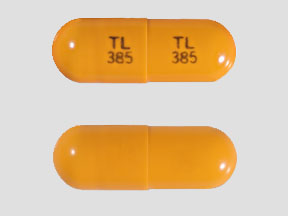Terazosin Side Effects
Medically reviewed by Drugs.com. Last updated on Mar 31, 2025.
Applies to terazosin: oral capsule.
Precautions
It is important that your doctor check your progress at regular visits to make sure that this medicine is working properly.
For patients taking this medicine for high blood pressure :
- Do not take other medicines unless they have been discussed with your doctor. This especially includes over-the-counter (nonprescription) medicines for appetite control, asthma, colds, cough, hay fever, or sinus problems, since they may tend to increase your blood pressure.
Dizziness, lightheadedness, or sudden fainting may occur after you take this medicine, especially when you get up from a lying or sitting position. These effects are more likely to occur when you take the first dose of this medicine. Taking the first dose at bedtime may prevent problems. However, be especially careful if you need to get up during the night. These effects may also occur with any doses you take after the first dose. Getting up slowly may help lessen this problem. If you feel dizzy, lie down so that you do not faint. Then sit for a few moments before standing to prevent the dizziness from returning.
The dizziness, lightheadedness, or fainting is more likely to occur if you drink alcohol, stand for long periods of time, exercise, or if the weather is hot. While you are taking this medicine, be careful to limit the amount of alcohol you drink. Also, use extra care during exercise or hot weather or if you must stand for long periods of time.
Terazosin may cause some people to become drowsy or less alert than they are normally. Make sure you know how you react to this medicine before you drive, use machines, or do anything else that could be dangerous if you are dizzy, drowsy, or are not alert. After you have taken several doses of this medicine, these effects should lessen.
Serious side effects of terazosin
Along with its needed effects, terazosin may cause some unwanted effects. Although not all of these side effects may occur, if they do occur they may need medical attention.
Check with your doctor as soon as possible if any of the following side effects occur while taking terazosin:
More common side effects
- dizziness
Less common side effects
- chest pain
- dizziness or lightheadedness when getting up from a lying or sitting position
- fainting (sudden)
- fast or irregular heartbeat
- pounding heartbeat
- shortness of breath
- swelling of feet or lower legs
Rare side effects
- weight gain
Other side effects of terazosin
Some side effects of terazosin may occur that usually do not need medical attention. These side effects may go away during treatment as your body adjusts to the medicine. Also, your health care professional may be able to tell you about ways to prevent or reduce some of these side effects.
Check with your health care professional if any of the following side effects continue or are bothersome or if you have any questions about them:
More common side effects
- headache
- unusual tiredness or weakness
Less common side effects
- back or joint pain
- blurred vision
- drowsiness
- nausea and vomiting
- stuffy nose
See also:
For healthcare professionals
Applies to terazosin: oral capsule, oral liquid, oral tablet.
General adverse events
Asthenia, blurred vision, dizziness, impotence, nasal congestion/rhinitis, nausea, somnolence, palpitations, peripheral edema, and postural hypotension were significantly more common (p-value less than or equal to 0.05) in patients receiving this drug than in patients receiving placebo.[Ref]
Nervous system
- Very common (10% or more): Dizziness (up to 19.3%), headache (up to 16.2%)
- Common (1% to 10%): Syncope, somnolence, paresthesia[Ref]
Other
- Very common (10% or more): Asthenia (up to 11.3%)
- Common (1% to 10%): Flu syndrome, vertigo, peripheral edema
- Uncommon (0.1% to 1%): Edema
- Frequency not reported: Chest pain, facial edema, fever, cold symptoms, flu symptoms, tinnitus[Ref]
Cardiovascular
- Common (1% to 10%): Postural hypotension, palpitations, tachycardia
- Uncommon (0.1% to 1%): Hypotension
- Frequency not reported: Arrhythmia, vasodilation
- Postmarketing reports: Atrial fibrillation[Ref]
Respiratory
- Common (1% to 10%): Dyspnea, nasal congestion/rhinitis, sinusitis
- Frequency not reported: Bronchitis, epistaxis, cough increased, pharyngitis[Ref]
Musculoskeletal
- Common (1% to 10%): Back pain, pain-extremities
- Frequency not reported: Neck pain, shoulder pain, arthralgia, arthritis, joint disorder, myalgia[Ref]
Genitourinary
- Common (1% to 10%): Impotence, urinary tract infection
- Frequency not reported: Urinary frequency, urinary incontinence
- Postmarketing reports: Priapism[Ref]
Psychiatric
- Common (1% to 10%): Nervousness
- Uncommon (0.1% to 1%): Depression, libido decreased
- Frequency not reported: Anxiety, insomnia[Ref]
Gastrointestinal
- Common (1% to 10%): Nausea
- Frequency not reported: Abdominal pain, constipation, diarrhea, dry mouth, dyspepsia, flatulence, vomiting[Ref]
Ocular
- Common (1% to 10%): Blurred vision/amblyopia
- Frequency not reported: Vision abnormal, conjunctivitis[Ref]
Metabolic
- Uncommon (0.1% to 1%): Weight gain
- Frequency not reported: Gout[Ref]
Dermatologic
- Frequency not reported: Pruritus, rash, sweating[Ref]
Immunologic
- Postmarketing reports: Allergic reactions, anaphylaxis[Ref]
Hematologic
- Postmarketing reports: Thrombocytopenia[Ref]
References
1. (2001) "Product Information. Hytrin (terazosin)." Abbott Pharmaceutical
More about terazosin
- Check interactions
- Compare alternatives
- Pricing & coupons
- Reviews (55)
- Drug images
- Dosage information
- During pregnancy
- Drug class: alpha blockers
- Breastfeeding
- En español
Patient resources
Other brands
Professional resources
Other brands
Related treatment guides
Further information
Terazosin side effects can vary depending on the individual. Always consult your healthcare provider to ensure the information displayed on this page applies to your personal circumstances.
Note: Medication side effects may be underreported. If you are experiencing side effects that are not listed, submit a report to the FDA by following this guide.

